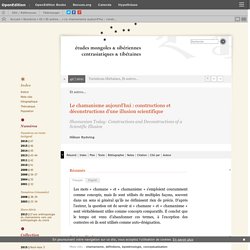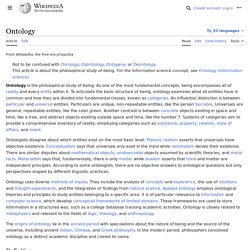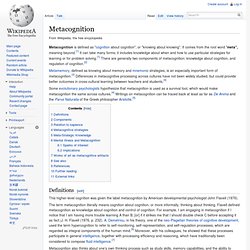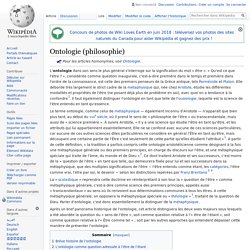

Soma in Vedas - R.L..Kashyap ~ ಕನ್ನಡಿಗರೇ ತಿಳಿಯಿರಿ ನೀವು ವೇದ. Soma is an enigmatic deva.

The Occidentals have treated Soma as nothing but a plant whose creepers, on being squeezed, yield a juice which is intoxicating. There are numerous passages where Soma occurs with the word “suta” meaning pressed or squeezed. It is said that Indra drinking this juice becomes intoxicated and in his intoxication kills the adversary Vrtra. There are some references to Indra killing Vrtra after drinking Soma. The verses on Soma number more than 1,200, including all the verses in the entire ninth mandala of Rig Veda consisting of 114 suktas or 1,108 verses. Le chamanisme aujourd’hui : constructions et déconstructions d’une illusion scientifique. Des DOI (Digital Object Identifier) sont automatiquement ajoutés aux références par Bilbo, l'outil d'annotation bibliographique d'OpenEdition.Les utilisateurs des institutions abonnées à l'un des programmes freemium d'OpenEdition peuvent télécharger les références bibliographiques pour lesquelles Bilbo a trouvé un DOI.

Le service d'export bibliographique est disponible pour les institutions qui ont souscrit à un des programmes freemium d'OpenEdition.Si vous souhaitez que votre institution souscrive à l'un des programmes freemium d'OpenEdition et bénéficie de ses services, écrivez à : access@openedition.org. Aigle, Denise, Bénédicte, Brac de la Perrière et Jean-Piere, Chaumeil (éds.)2000 La politique des esprits. Epistemology - Wikipedia. A branch of philosophy concerned with the nature and scope of knowledge Epistemology (; from Greek ἐπιστήμη, epistēmē, meaning 'knowledge', and -logy) is the branch of philosophy concerned with the theory of knowledge.

Epistemology is the study of the nature of knowledge, justification, and the rationality of belief. Meta-ontology - Wikipedia. Ontology - Wikipedia. Study of the nature of being, becoming, existence or reality, as well as the basic categories of being and their relations Parmenides was among the first to propose an ontological characterization of the fundamental nature of reality.

Etymology[edit] While the etymology is Greek, the oldest extant record of the word itself, the New Latin form ontologia, appeared in 1606 in the work Ogdoas Scholastica by Jacob Lorhard (Lorhardus) and in 1613 in the Lexicon philosophicum by Rudolf Göckel (Goclenius). Metacognition. Metacognition is defined as "cognition about cognition", or "knowing about knowing".

It comes from the root word "meta", meaning beyond.[1] It can take many forms; it includes knowledge about when and how to use particular strategies for learning or for problem solving.[1] There are generally two components of metacognition: knowledge about cognition, and regulation of cognition.[2] Metamemory, defined as knowing about memory and mnemonic strategies, is an especially important form of metacognition.[3] Differences in metacognitive processing across cultures have not been widely studied, but could provide better outcomes in cross-cultural learning between teachers and students.[4] Some evolutionary psychologists hypothesize that metacognition is used as a survival tool, which would make metacognition the same across cultures.[4] Writings on metacognition can be traced back at least as far as De Anima and the Parva Naturalia of the Greek philosopher Aristotle.[5] Definitions[edit] [edit]
Phenomenology (philosophy) Phenomenology (from Greek: phainómenon "that which appears" and lógos "study") is the philosophical study of the structures of experience and consciousness. As a philosophical movement it was founded in the early years of the 20th century by Edmund Husserl and was later expanded upon by a circle of his followers at the universities of Göttingen and Munich in Germany. It then spread to France, the United States, and elsewhere, often in contexts far removed from Husserl's early work.[1] Metalinguistics - Wikipedia. Meta - Wikipedia. For information on the wiki-based web site for the coordination of all the Wikimedia Foundation projects, see Wikipedia:Meta.

Meta (from the Greek preposition and prefix meta- (μετά-) meaning "after", or "beyond") is a prefix used in English to indicate a concept which is an abstraction behind another concept, used to complete or add to the latter. Original Greek meaning[edit] About (its own category)[edit] In epistemology, the prefix meta- is used to mean about (its own category). For example, metadata are data about data (who has produced them, when, what format the data are in and so on). Ontologie (philosophie) L'ontologie dans son sens le plus général s'interroge sur la signification du mot « être ». « Qu'est ce que l'être ?

», considérée comme question inaugurale, c'est-à-dire première dans le temps et première dans l'ordre de la connaissance, est celle des premiers penseurs de la Grèce antique, tels Parménide et Platon. Elle déborde très largement le strict cadre de la métaphysique qui, née chez Aristote, étudie les différentes modalités et propriétés de l'être (ne posant déjà plus de problème en soi), avec quoi on a tendance à la confondre[1]. Il faut également distinguer l'ontologie en tant que telle de l'ousiologie, laquelle est la science de l'être entendu en tant qu'essence. La « scolastique » reprendra cette doctrine en réinterprétant à son tour la « question de l'être » comme métaphysique générale, c'est-à-dire comme science des premiers principes, appelés aussi « transcendantaux » au sens où ils renvoient aux déterminations communes à tous les êtres.
‘The Key to Immortal Consciousness’: The 82 Commandments of Alejandro Jodorowsky. We’ve posted here before Captain Beefheart’s 10 Commandments of Guitar Playing, but this list of the eighty-two “commandments” of the great film director Alejandro Jodorowsky makes that look like a fortune cookie.

In the book The Spiritual Journey of Alejandro Jodorowsky, the author describes meeting Reyna d’Assia, daughter of the influential spiritual teacher George Ivanovich Gurdjieff, who was quite prominent in the early part of the 20th century and died in 1949, when Jodorowsky was 20 years old. (It is interesting to note that Wikipedia does not list Reyna d’Assia as one of Gurdjieff’s “known natural children,” of which Wikipedia lists seven.) Among Gurdjieff’s fans were such DM faves as Robert Fripp, Kate Bush, Keith Jarrett, and Timothy Leary. Alan Watts on How to Fake Your Way as a Spiritual Teacher.
The Staggering Bullshit of "The Secret" I hate The Secret.

There, I said it. I know I’m a self-development blogger and I’m supposed to keep everything light and airy and full of poop jokes, but fuck it — I hate it. It’s an awful book. And it needs to be said. Every generation in the past century has had a breakout self-help book that sells a bazillion copies and bulldozes through a few million people’s wallets. The funny thing about all of these books is that they all more or less say the same thing: mind your own thoughts, stay positive and focused on your goals, ignore self-doubt and criticism, visualize and concentrate on what you want and you will eventually have it. Each book brings its own generational edge to the same fundamental idea. It’s not surprising then that Byrne’s work, launched amid the social media/smartphone age, brings a harrowing narcissism and an “I’m the center of the universe” angle to the same old ideas.
What is ‘The Secret’? Samatha.